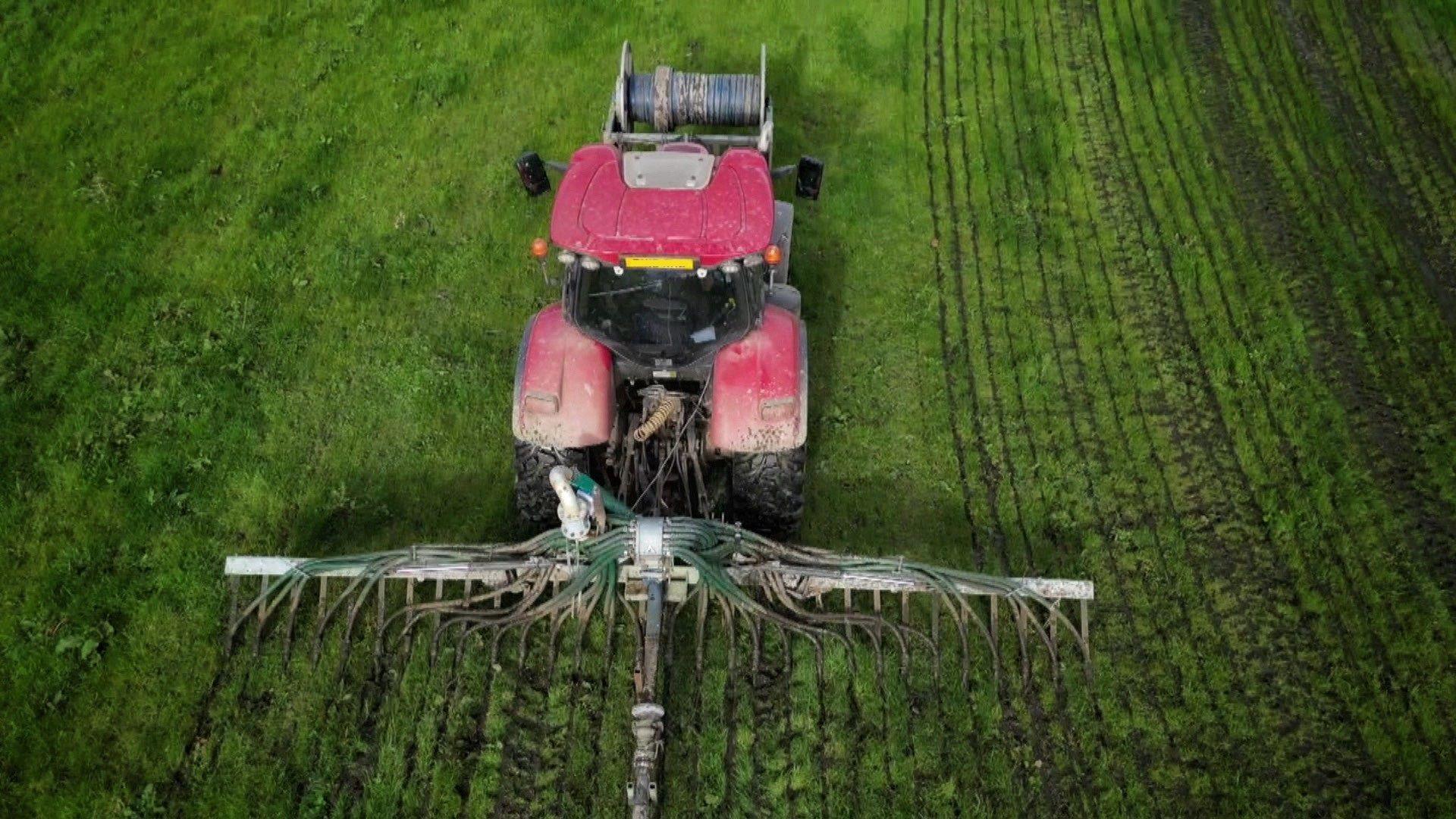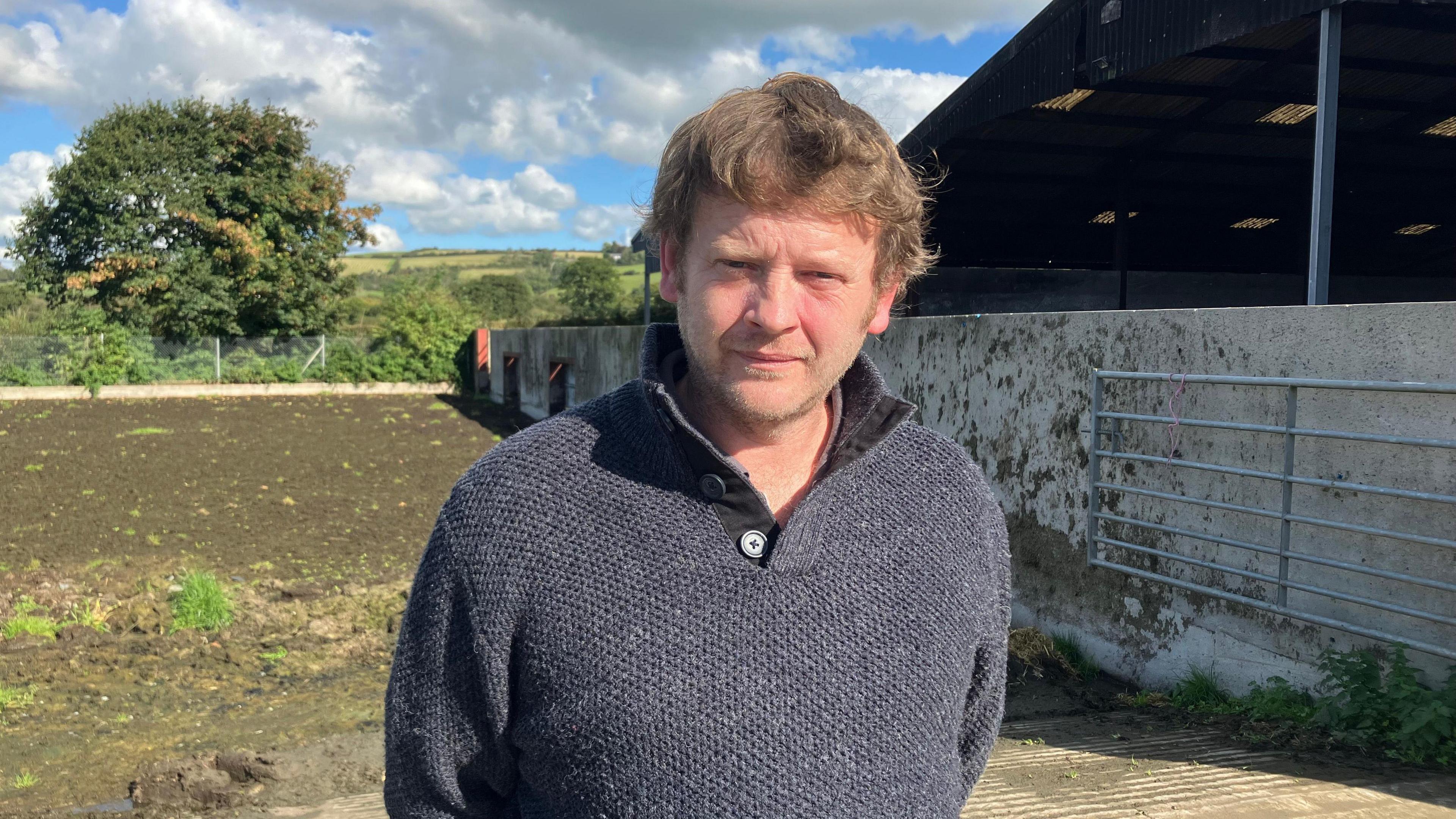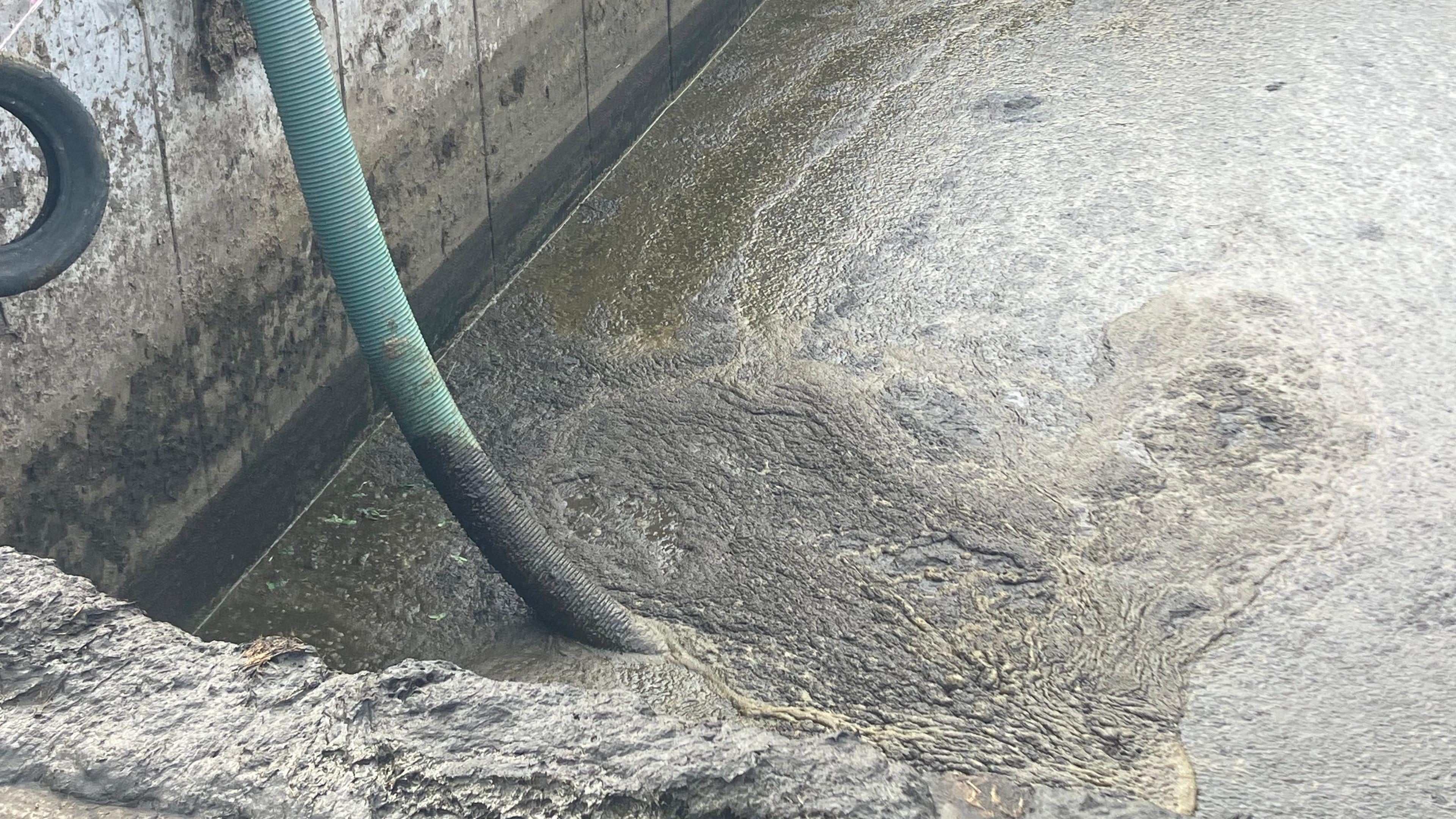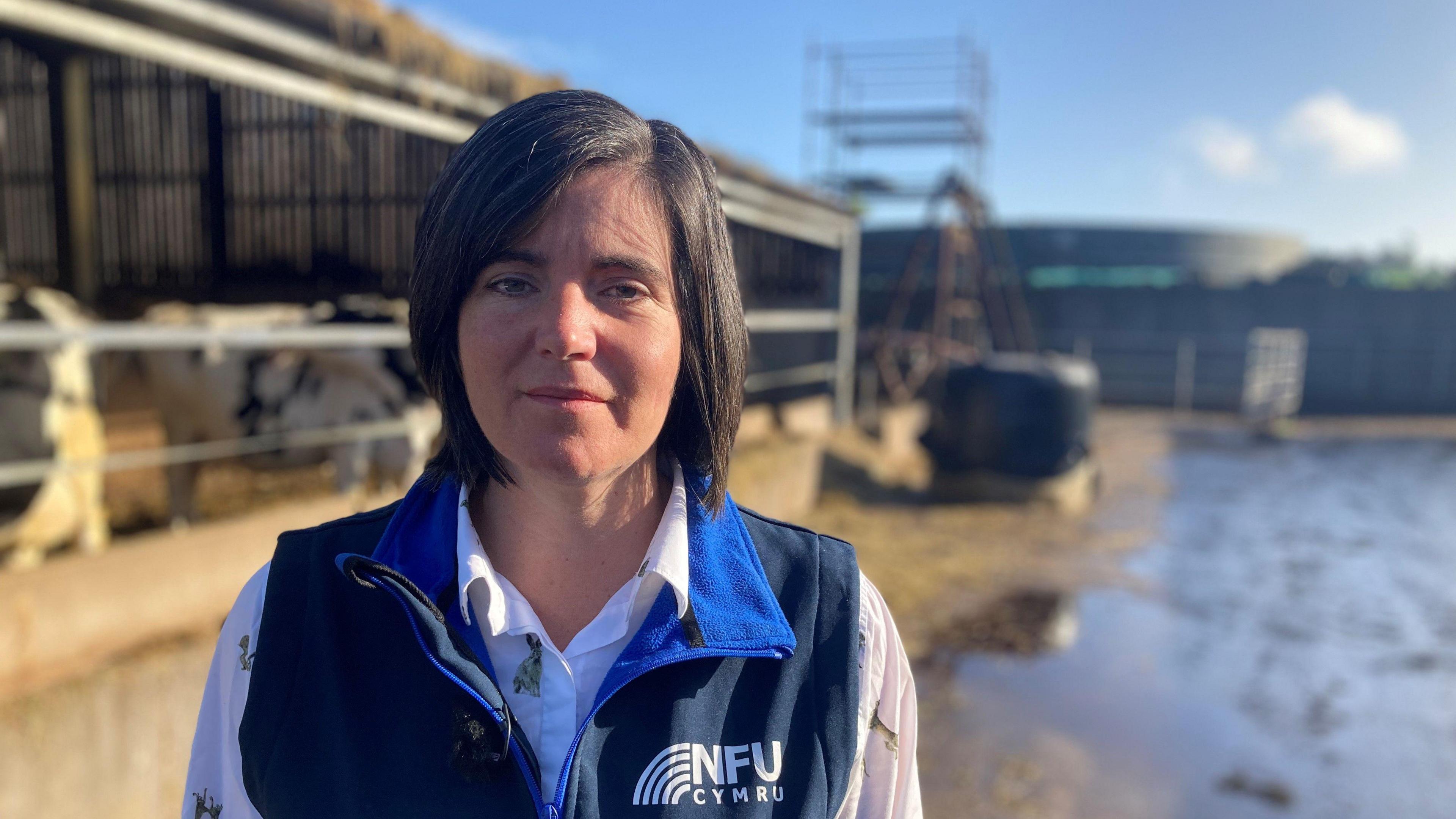Farmers say they face polluting or breaking law

A wet start to autumn has meant some of Wales' livestock farms have struggled to empty their slurry stores ahead of a ban on spreading manure
- Published
Some farmers have claimed they have to choose between the risk of polluting rivers or breaking the law, ahead of a controversial muck-spreading ban.
New rules forbid slurry spreading across Wales from mid-October to January in a bid to protect water quality - but current wet weather means some farmers said spreading manure could see it seep into waterways.
Farming union NFU Cymru said there was "enormous concern" after wet conditions had hampered efforts to empty slurry stores ahead of the deadline.
But the organisation representing Wales' rivers' trusts said the country's waterways were in "chaos" and farmers have had years to prepare for the changes.
Underperforming Welsh Water ordered to pay £24m
- Published8 October 2024
Hundreds of watchdog job cuts 'put nature at risk'
- Published23 September 2024
Why are farmers in Wales ready to protest?
- Published28 February 2024
"What am I supposed to do?" asked Gary Howells in desperation, standing in front of the slurry pit at his sheep and cattle farm near Pentrecwrt, Carmarthenshire.
After weeks of rain, he said many fields were too wet to allow a tractor to drive on them to spread manure, while contractors who might help with the work were also in short supply.
"In conditions like this I can't get the pit empty," he explained.
"Either I break the law and keep it until after the middle of October and spread it later on, working with the weather, or I take it out now even though it's raining and perhaps pollute the river.
"I've not polluted a river and I've not broken the law in my life - what does the government want me to do?"

Gary Howells says farmers should be allowed to spread slurry during the winter as long as they are "careful of the conditions"
The new regulations on storing and spreading fertiliser and slurry, external have been the subject of debate in Wales for the best part of a decade, and were brought in in 2021.
But this winter will be the first time one of the most controversial aspects - a total ban on slurry spreading - has been enforced.
Farms must have five months worth of slurry storage capacity and be in a position, come 15 October, to no longer need to spread their animals' manure for three months.

Farm slurry is a mixture of water and cow manure, which is spread on the land as a natural fertiliser
Huw Evans, an agricultural contractor, said it would have "a massive effect" on his business, which helps farms with tasks such as slurry spreading.
"We had a week of dry weather in September and everyone wanted their sileage in and their slurry out as well - you just can't do it all," he said.
"I've got 10 people working for me, six of them will probably be out of work now because I won't be able to afford to keep them for three months."
He called on the government to make changes or risk having "a hell of a mess on their hands".

Abi Reader says farmers could not have spread their slurry earlier as they were still waiting to harvest crops such as grass and maize, after a wet and cold summer
Abi Reader, deputy president of NFU Cymru, said the union had warned repeatedly that having "very rigid calendar dates" for slurry spreading would cause problems.
Challenged on the fact that farmers had several years to prepare, she claimed some had faced delays in getting planning permission for new slurry stores.
Grant funding - worth £20m - had also only become available in recent months.
"There's a lot of worry out there from farmers about how they're going to manage this winter," she said.

Latest figures suggest a 70% decline in salmon stocks on Wales' 23 principal salmon rivers over the last 10 years
River groups argue the regulations must "stay as they are" and should "face no further delay".
Just this week, Natural Resources Wales (NRW) warned stocks of salmon and sea trout in Welsh rivers were at their lowest since records began in the 1970s, external.
"Our rivers are unfortunately in chaos at the moment and slurry is frequently cited as one of the main sources of pollution," said Gail Davies-Walsh, chief executive of Afonydd Cymru.
Farmers had been given "a generous transition period by Welsh government", she said - with every application so far for grant funding approved.
"There's been sufficient time in this process to plan and get the infrastructure in place."

Afonydd Cymru's Gail Davies-Walsh says it was "disappointing" to hear calls for further delay to the regulations
In the Senedd, Rural Affairs Secretary Huw Irranca-Davies said he recognised "the difficulties farms have faced since the regulations were introduced".
He said there would be some leniency when it comes to policing the ban this year, but only where farmers could prove they were actively taking steps to comply with the rules.
The Welsh government said the slurry ban was necessary "to prevent increased losses of both nitrogen and phosphorus to water".
Farmers and agricultural contractors had been consulted during the development of the regulations, a spokeswoman added, and "any issues will be considered further" as part of an ongoing four-year review.
NRW said it had two teams of officers dedicated to working with farmers on the new regulations.
"They have carried out over 500 farm inspections since November 2023, taking a positive, sensitively-managed approach," a spokeswoman said.
"We do advise [them] to utilise their slurry before the winter period and take appropriate action to eliminate unnecessary clean water entering the store to maximise the storage capacity."